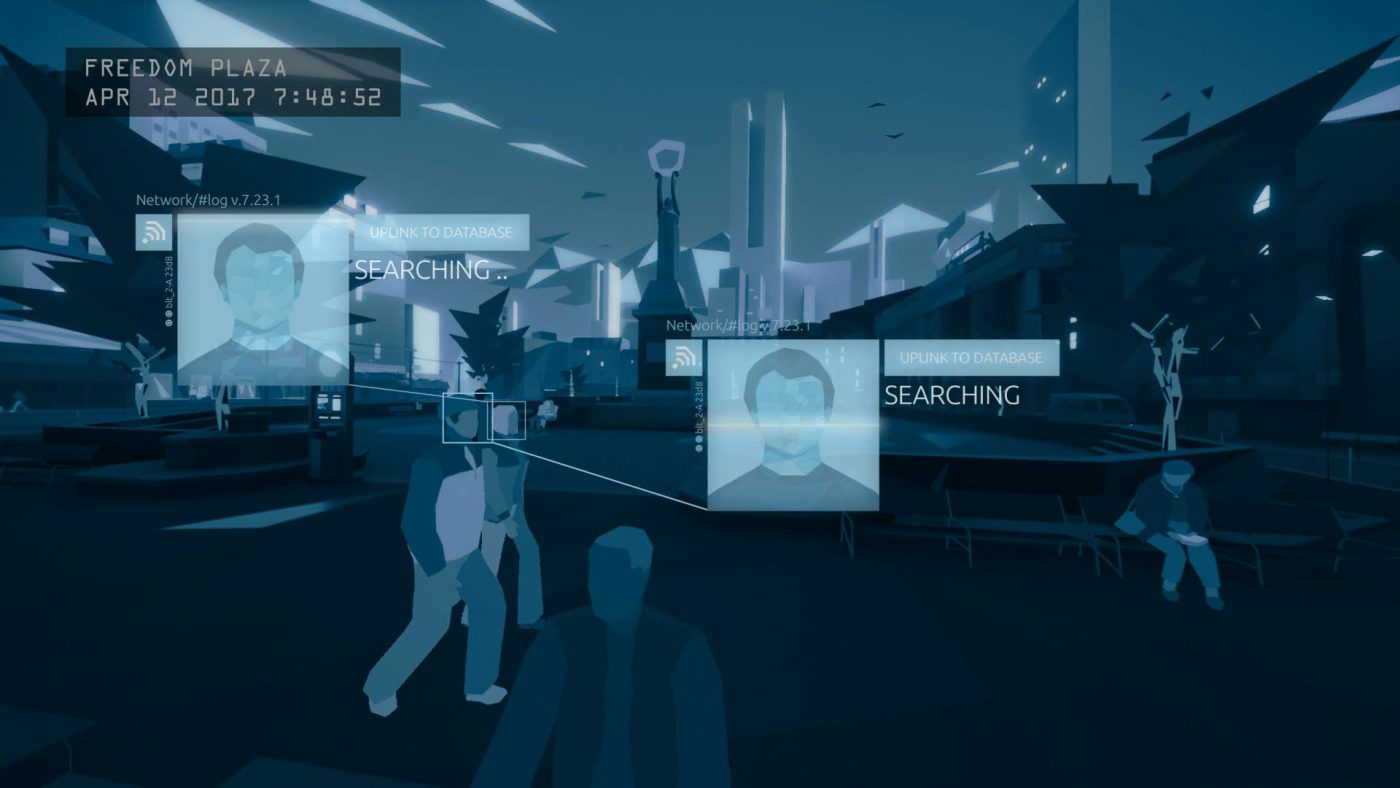Steam recently had its annual summer sale, with several games available for fractions of their usual prices. After looking through the various indie games that were discounted, I settled on a few to purchase. Of all the titles I got from the sale, one reigns supreme: Orwell, developed by Osmotic Studios.
Orwell has a premise and gameplay design that is unlike anything else I’ve ever played. The player assumes the role of a government employee, spying on citizens of the Nation using a top-secret surveillance program, the titular Orwell. Your view in game is of the character’s computer screen, and you have access to files on various suspected terrorists, as well as their e-mail correspondences, phone calls, and web presence. Most of the gameplay revolves around analyzing these files for data chunks, which you have the option of uploading to the Orwell system. What information you choose to share (or not share) with the government has consequences; the way you act on evidence can take or save lives, as well as change the future of the Nation and Orwell program itself.

The game came out late last year but still feels intensely relevant, and likely always will. Questions of governmental abuse and surveillance over citizens will never go away, and feel particularly timely to me as an American gamer. The post-September 11th/Patriot Act/second Bush administration era brought attention to the tactics our government uses (as well as the lines it will cross) to gain information, and that atmosphere of distrust and concern has survived into the present.
Plot-wise, Orwell excels. The player doesn’t have access to any information that their character does not, so one feels like they are uncovering the secrets behind bombings and other mysteries in real time. The cast is multi-faceted and interesting; none of the suspected terrorists are painted in black and white terms. Many of the game’s prime suspects are merely people who publicly expressed discontent with the possibility of government surveillance. This detail is crucial to the game’s success, as it makes clear how easily security measures can target individuals who are of no threat to anyone.
With that said, there are plenty of characters who commit atrocious acts–but one of them is the player avatar, and players have to grapple with questions regarding the nature of good or evil as well as when and to what degree desirable ends justify immoral means. These philosophical questions play out across an engrossing storyline in which the player has to question their perceptions of the truth every step of the way. Orwell has twists that work in the best way; plot revelations are shocking while still making sense and never coming across as a desperate attempt to get a rise out of the audience.

Orwell’s gameplay is mostly well set-up. The interface is charming in its uniqueness, while also feeling somewhat cold and impersonal. The bare-bones aesthetic design helps reinforce the game’s themes regarding difficulties inherent to finding truth or meaning from mere tidbits of individuals’ lives. The impersonal nature of the game also further raises the question of what it means to view a suspect or other citizen in ways that border on or cross over into dehumanization. This atmosphere of distance is enhanced by a soundtrack that, while limited in size, is effective in its eeriness and ability to generate suspense.
My main frustrations with the gameplay came at points where I became stuck and decisions regarding which files to search through seemed counter-intuitive. I appreciate that the game’s progression path is not completely obvious throughout, but there were points where I was not able to move forward without consulting a guide. Snooping around e-mails and various websites searching for clues is fun, but only to an point. Thankfully, Orwell’s most difficult portions don’t generally last very long.
Player inputs affect the game’s storyline in ways similar to visual novels, where different choices unlock varying story paths. This is crucial to Orwell’s success, as one gets to feel that the decisions they make with suspects’ information have consequences. This sense of accountability is powerful and necessary for a game so centered around real world issues of security and freedom. The unique gameplay design, combined with stylistic visuals, an atmospheric soundtrack, and strong writing, make for a very memorable experience. Overall, Orwell is a suspenseful tale that has as much to say about our world as it does about its own.
Join the AIPT Patreon
Want to take our relationship to the next level? Become a patron today to gain access to exclusive perks, such as:
- ❌ Remove all ads on the website
- 💬 Join our Discord community, where we chat about the latest news and releases from everything we cover on AIPT
- 📗 Access to our monthly book club
- 📦 Get a physical trade paperback shipped to you every month
- 💥 And more!














You must be logged in to post a comment.